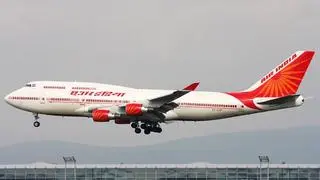Putting their money where the mouth is, Indian pilots have taken the Directorate General of Civil Aviation (DGCA) to court. In August, when the DGCA reissued a Civil Aviation Requirement (CAR), doubling the notice period commanders have to give for changing jobs to one year, the pilots threatened of taking the legal route. The notice period for a co-pilot has remained unchanged at sixmonths.
“We have filed a petition that the CAR for the notice period of one year be quashed as the DGCA does not have the power to issue this CAR,” says Anubha Singh, lawyer for the Indian Pilots Guild (IPG). The Delhi High Court has set October 16 as the final date for hearing.
The pilots are irked. Their companies have not added such a clause, then why should the regulator step in between? A pilot, on conditions of anonymity, points out that the new clause was akin to the Road Transport Office withdrawing the driving licence of a person who quits his current employer and joins another ( pilots risk losing their licenses if they don’t serve the notice period.
Pilots also contend that the regulator did not intervene when Kingfisher wound up, leaving several employees with unpaid salaries for several months. “So why should it interfere now?” asks a pilot.
Strangely enough, even DGCA officials admit that by reissuing the CAR, the regulator is interfering in a contractual obligation between the employee and employer. But they are quick to add that they are acting within the “statutes of Indian law.”
A safeguardThe DGCA claims that the step will prevent pilots from leaving suddenly, and in large numbers, which could otherwise cripple an airline’s operations, disrupt flights and cause inconvenience to passengers. The regulator adds that the laid-down time (the time an airline takes to train a pilot)also makes it a while before a newly hired pilot becomes a commander.
This argument does gain some credence as domestic airlines are in an expansion phase and have ordered more aircraft which will require trained manpower. SpiceJet ordered 205 Boeing aircraft in January. In August 2015, IndiGo ordered 250 Airbus 320 New Engine Option (NEO) aircraft, the largest order ever placed by an Indian airline. This has increased demand for commanders creating a mismatch with the tight supply.
Of course, the pilots are calling such explanations “hogwash.” Says Amit Jain, President, IPG, “Suppose I am an Airbus 320 Captain and I join another airline (with the same kind of fleet), it’s only the airline operating manual thatis different. If there is type conversion, from say a A 320 pilot and now I start flying a Boeing 737, it takes two months ( of training. Besides there is anyway a notice period of six months. How does increasing it to one year serve the public?” he asks.
Right to interveneStating that DGCA is a technical directorate and not there to run an airline, a former DGCA officialsays, “When you are intervening in this issue you are intervening in the administrative policies of an airline for which you do not have any legal powers.” He further adds, “Six months is a good time. If someone cannot make the grade (in six months of training) then he or she is not fit to be a pilot.”
In the late 1990’s and early 2000’s, when the Indian skies were opened up and new airlines started operations, there was a huge demand for pilots. The DGCA came up with a six-month notice period for commanders and co-pilots. While many agree that was a right step given the infancy of the aviation industry, a lot has changed since then. The aviation sector has become much more competitive and airlines have learnt how to either retain or let go of their pilots and other trained manpower.
Doubling the notice period is not the only option to retain pilots. “Pilots do not spend money on their recurrent training. It is something which an airline pays for. Airlines now insist pilots give a financial bond which they forfeit in case they leave without serving a minimum notice period, which is stated in the service contract that exists between the airline and the pilot,” the former aviation regulator says.
While these arguments sound solid for the pilots’ case, everything hinges on the view the Delhi High Court takes on the matter.







Comments
Comments have to be in English, and in full sentences. They cannot be abusive or personal. Please abide by our community guidelines for posting your comments.
We have migrated to a new commenting platform. If you are already a registered user of TheHindu Businessline and logged in, you may continue to engage with our articles. If you do not have an account please register and login to post comments. Users can access their older comments by logging into their accounts on Vuukle.